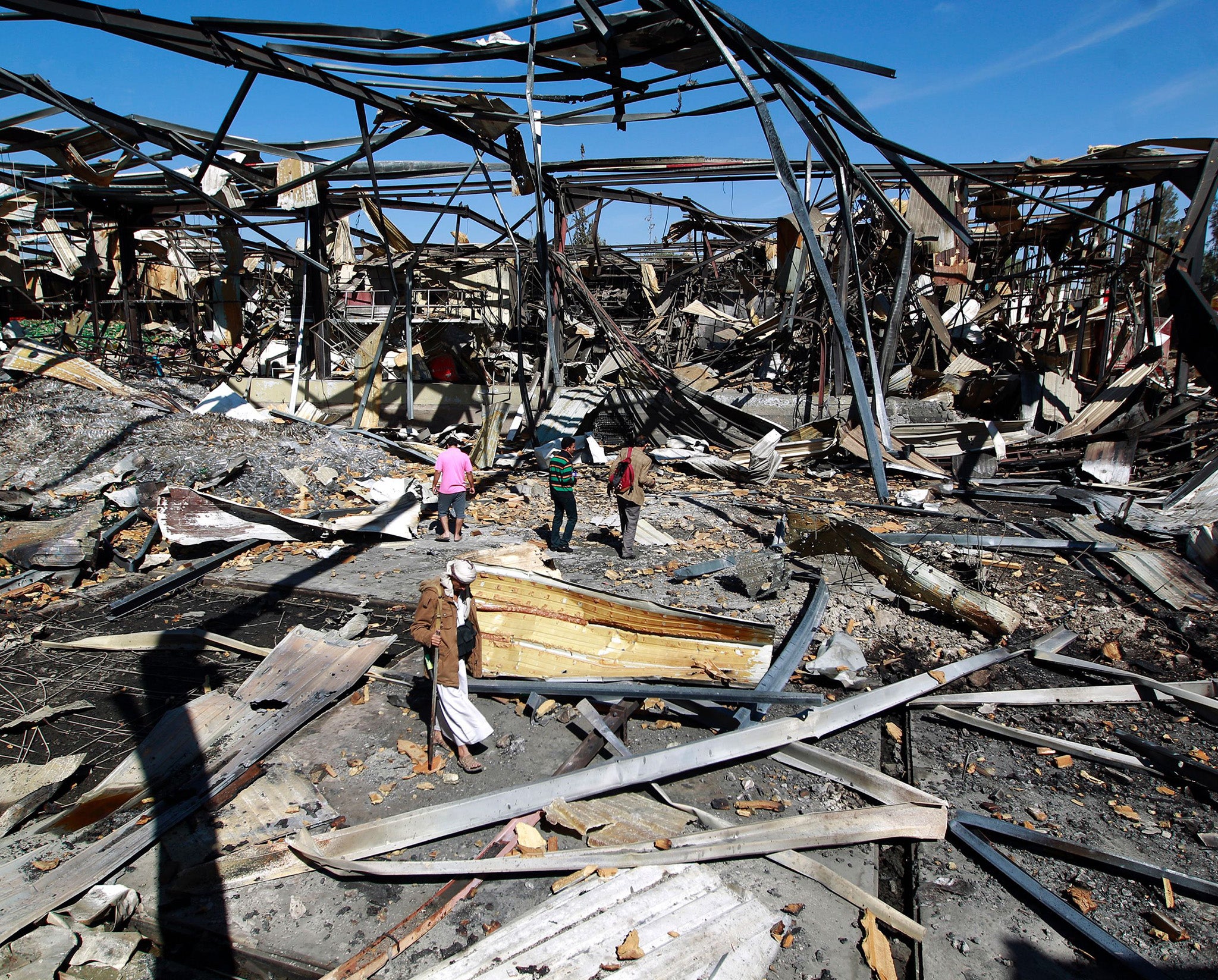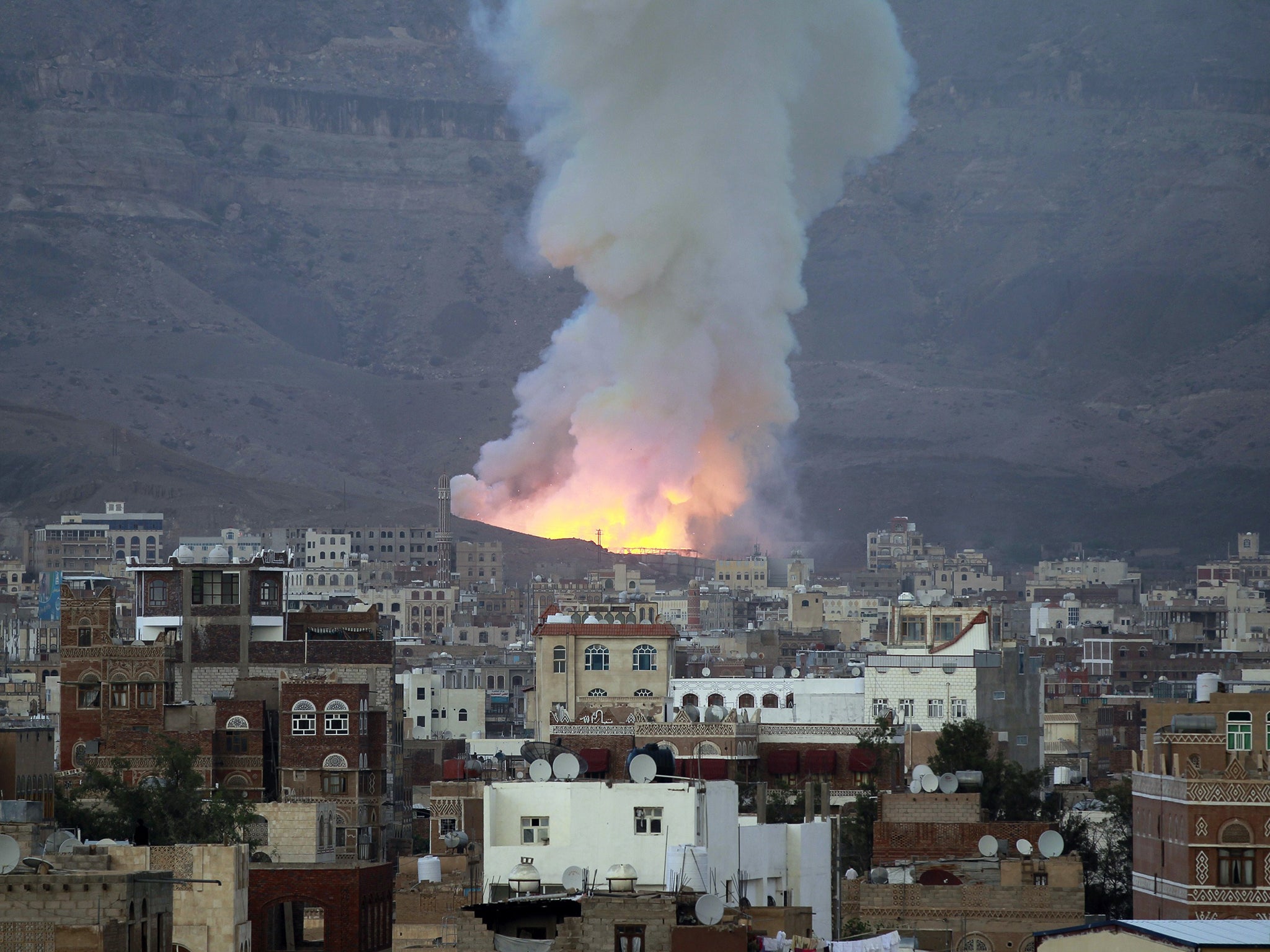Yemen: Almost 2,800 civilians killed as civil war and Saudi Arabia-led air strikes take 'terrible toll' on lives
The United Nations has raised concern about reports cluster munitions are being used on villages

Your support helps us to tell the story
From reproductive rights to climate change to Big Tech, The Independent is on the ground when the story is developing. Whether it's investigating the financials of Elon Musk's pro-Trump PAC or producing our latest documentary, 'The A Word', which shines a light on the American women fighting for reproductive rights, we know how important it is to parse out the facts from the messaging.
At such a critical moment in US history, we need reporters on the ground. Your donation allows us to keep sending journalists to speak to both sides of the story.
The Independent is trusted by Americans across the entire political spectrum. And unlike many other quality news outlets, we choose not to lock Americans out of our reporting and analysis with paywalls. We believe quality journalism should be available to everyone, paid for by those who can afford it.
Your support makes all the difference.The civilian death toll in the continuing war in Yemen has risen to almost 2,800 amid accusations that the Saudi-led coalition is using cluster bombs on populated areas.
According to the UN High Commissioner for Human Rights (OHCHR), children were among the 81 civilians killed and 109 wounded in December.
The conflict has been raging since March, when the Houthi-led Supreme Revolutionary Committee attempted to overthrow the Hadi government, sparking a civil war drawing in at least a dozen other countries, as well as groups affiliated with Isis and al-Qaeda.

Iran is supporting the Revolutionary Committee, while the US and a coalition of Gulf nations led by Saudi Arabia is backing the former government with a bombing campaign.
A spokesperson for the OHCHR said the conflict continues to take a “terrible toll on civilians”, including more than 5,300 men, women and children in little over nine months.
“During the month of December, at least 62 civilians were reported to have been killed by airstrikes attributed to the (Saudi-led) coalition forces,” he added.
“This is more than twice the number of civilians reported killed in November.”

Two air strikes reportedly killed 18 civilians when they hit a house in Saada Governorate on 18 December, while three children were among those who died in bombing that destroyed 14 houses in Al-Ḥudaydah two days later.
The recorded number of civilians killed by shelling by the Houthi-affiliated Popular Committees decreased last month to 11, according to UN figures.
A spokesperson for the OHCHR said it had received “alarming information on the alleged use of cluster bombs” by coalition forces in Hajjah Governorate.
Inspectors saw the remnants of 29 of the bombs near banana plantations during a visit to village of Al-Odair, in Haradh District, where witnesses claimed other villages had been affected, with civilians stepping on unexploded submunitions.

Senegal is the only nation in the coalition to be among the 98 signatories to a UN convention banning the use of cluster munitions.
The bombs, which release multiple “bomblets” over a wide area, can be indiscriminate and kill civilians long after conflicts have ended by failing to detonate until they are trodden on.
The UN raised particular concern over the city of Taizz, which has been the scene of violent clashes for the past eight months and has Popular Committees forces blocking all entry points, limiting access to food, medicine and essential supplies.
Dozens of prisoners have also died in bombing since the start of the war, which has also caused more than 4,000 to escape, while those remaining face food, electricity, water and food shortages as disease spreads.
Daily air strikes continued today, as the governor of the southern port city of Aden survived a suspected assaassassination attempt that killed two of his bodyguards.
Aidarous al-Zubaidi’s car was attacked a month after his predecessor was killed in a bombing claimed by Yemen's local Isis affiliate.
Aden is controlled by the internationally recognised government, while Houthi rebels control the capital and parts of the north, with al-Qaeda in the Arabian Peninsula (AQAP) and Isis seizing other territory.
UN-backed peace talks secured a truce starting on 15 December but, after being repeatedly violated by both sides, it was officially ended by the Saudi coalition on Saturday.
Earlier the same day, Saudi Arabia executed a dissident Shia cleric convicted of “terrorism”, sparking riots outside Saudi consulates in Iran and a cut in diplomatic ties between the two countries, threatening to worsen their proxy wars in Yemen and Syria and deepen sectarian tensions in the region.
Additional reporting by Reuters
Join our commenting forum
Join thought-provoking conversations, follow other Independent readers and see their replies
0Comments